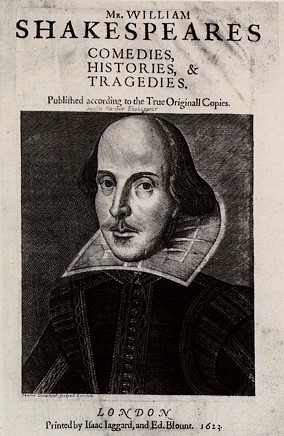Shakespeare's Jew at ArtsEmerson
A Panel Discussion with F. Murray Abraham
By: Mark Favermann - Jan 27, 2011
Shylock is one of the most reviled and yet complicated characters in dramatic literature. In a post Holocaust era, to many Jews, he is a hideous stereotype long held by ignorant and Anti-Semitic individuals. He discomforts or embarrasses Jews at best , hurts and sickens them at worst. To thinking non-Jews, he is an uneasy villainous representation similar to a black face performer representing Black individuals. Shylock came out of an English and European tradition predating the Crusades that negatively mythologized Jews as vile "others." Shylock was Shakespeare's Jew. This was the title of a thought-provoking and entertaining panel discussion held Wednesday night at Emerson College's Paramount Theatre.
Four distinguished Shakespeare experts participated in the panel sponsored by ArtsEmerson and the New Center for Arts and Culture. included on the panel was the great actor F. Murray Abraham, considered to be one of the great Shylock interpreters of all time. Tina Packer, the formidable actress and fiesty founder of Shakespeare & Company and Jeffrey Horowitz, the definitive and innovative Shakespeare production producer on an off Broadway rounded out the panel. The avuncular moderator was Robert Brustein, one of the greatest scholars, directors, writers and theatrical impresarios in the last 50 years. The audience weathered a snow storm to attend the recently renovated sold out Art Deco theatre.
Robert Brustein began the discussion by asking Mr. Abraham about playing the role of Shylock. His answer expressed his inhabiting the complex character. He also spoke to the very human father/daughter relationship of Shylock to his wayward daughter Jessica and how humanly disappointing she must have been to Shylock. This led to a comparison of Christopher Marlowe's much more virulently AntiSemitic The Jew of Malta as a model for Shakespeare.
Mr. Brustein pointed out that until the early 19th Century when the great Shakespearean actor Edmund Kean played Shylock rather straight, for centuries Shylock was played with red fright wig and hooked nose. This getup was the mask of Marlowe's vile clownish buffoon greed-filled Jew, Barrabas, the Jew of Malta. Later in the discussion, Murray Abraham pointed out a discrepancy in the courtroom scene when the Merchant and the Jew were compared as literal twins: " Who is the Merchant and who is the Jew?" How could this be not apparent if the actor playing the Jew was wearing a red fright wig and a false hooked nose?
Questions to Tina Packer by Robert Brustein revolved around shakespeare's concern for "otherness," the alien, the outsider. She spoke about this notion in The Merchant of Venice not only in regard to Shylock, the Jew, but to Antonio as a presumed gay man as well as about Portia, a protofeminist woman who posed as a man to serve as a lawyer. She felt that Merchant demonstrated much of Shakespeare's thoughts about different forms of the outsider, human diversity and society. She also went on at length about the strength of Shakespeare's female characters. However, Mr. Brustein pointed out that they were all played for centuries by young boys. And Robert Brustein pointed out that Shakespeare's own two daughters could neither read nor write.
Jeffrey Horowitz explained the history of having The Merchant of Venice produced in New York City over the past decades. At one point, he had playing in tandem Marlowe's Jew of Malta, Shakespeare's The Merchant of Venice and Dickens' Oliver Twist. Charles Dickens was considered an AntiSemite as well with the character Fagen. Prior to this, Horowitz spent many hours speaking to New York's Jewish community, the NYC School Board and the Antidefamation League. Mr. Horowitz also spoke to the ambiguity of the Shylock character and the ability of a director to frame and explore the play in different and sometimes surprising ways.
When Mr. Brustein opened the panel to questions from the audience, the response was intense, full of history, perception and personal involvement with The Merchant of Venice. Several questioners appeared to be current or former academics or scholars and others were theatre directors. One man questioned the notion of the real connection to Judaism a third generation Converso or Morrano would have. A women spoke about having directed The Merchant of Venice in a women's prison with Shylock played by an HIV infected inmate. She explained in the last conversion scene, the female inmates all jeered and yelled out that a Jew should remain a Jew if they want to be. Other individuals spoke to who actually wrote the plays. At the end of the evening, a very sophisticated Robert Brustein complimented the audience on the quality of their participation.
Shakespeare's Shylock begins The Merchant of Venice much as an Elizabethan audience would have expected, as the villain. As the money-hungry Jewish usurer that had become a stereotypical character in Elizabethan drama, Shylock makes himself thoroughly unpleasant, downright repugnant with asides to the audience how he hated Antonio because Antonio was a Christian and because he lends money without interest, thus competing with Shylock and threatening Shylock's means of supporting his family. At the end of the play, Shylock is somehow more human.
Shakespeare had Shylock in his final scene act out another stereotype--a ritual murder. There is no mention in the play that Shylock would use Antonio's blood in any religious ritual. But the audience would have immediately associated the stage action with the myth. Shakespeare seemed to be giving his audience exactly what they expect from a stage Jew. In Portia, the audience got the means to stop the ritual murder because she would not let the Jew shed one drop of Christian blood. The text specifically says "Christian," reinforcing the "blood libel" legends. Less than sensitive or even bright, Sarah Palin incorrectly invoked the notion recently.
While perpetuating stereotypical notions of Jews, Shakespeare created a Jewish character who was flawed yet human, as well as heavily oppressed by the Christians surrounding him. This is an extraordinary thing for an Elizabethan playwright, one who probably never met a real Jew. The Bard tells the audience of Shylock's encounters with Christians and how they spat upon him, called him nasty names, and totally rejected him. Shylock was a man who suffered at the hands of his fellow men and finally reaches a breaking point.
It has been suggested that Shylock's coercion was a metaphor for England's religious oppression during Shakespeare's lifetime. His forced conversion also fits with Catholics forced to become Protestants and vice versa, depending on who was in control of the throne at the time. Therefore, conversion or lose of lives. Supposedly, Shakespeare's own forefathers were Catholics forced to convert to Protestantism, and this greatly informed the play.
Historically, the Jews were expelled from England in 1290. They were not welcomed back until the reign of Oliver Cromwell in the mid17th Century. The only visible individuals with Jewish heritage living in England were descendants of converted Jews from primarily Spain, Portugal and Italy. They were called Conversos or Morranos. Shakespeare probably would have known members of an extended family of Converso musicians named Bossano who were from North Africa via Italy. Henry VIII had brought early members of the family to perform at court in 1536.
He probably witnessed the seemingly unjust 1594 execution of Queen Elizabeth's physician Rodrigo Lopez who was falsely accused of trying to poison her. Dr. Lopez was from Portugal and a Morrano or hidden Jew, though outwardly he was a pious Protestant. Some scholars suggest he was a model for Shylock while others hold fast to the Christopher Marlowe Barrabas character in The Jew of Malta as the model. The term Shylock has come down over the 500 years since The Merchant of Venice was written to be a derogatory word referring to a loan shark.
Shylock can be seen as both an Elizabethan stereotype and a flawed human being. Because of the stereotypical elements in Shylock's character in The Merchant of Venice, it is often viewed as an anti-Semitic work. Shakespeare did not create Shylock as a one-dimensional villain, but as a complex, complicated and very human character. As the panel members seemed to agree, Shylock defies explanation.






